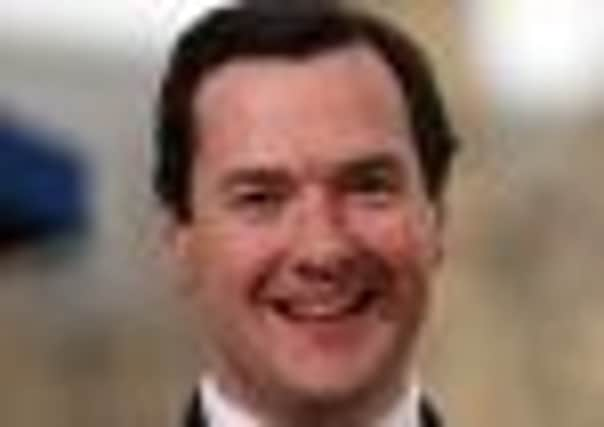Osborne to risk backlash from business


Osborne has vowed to stick to his austerity programme aimed at eliminating the record budget deficit but he risks a backlash from his opponents if his Autumn Statement on Tuesday provides too little help for Britain’s struggling businesses.
He will unveil details of his “credit easing” plan – bonds issued by the Treasury to small firms – and is expected to target the wealthy and look at ways to tackle tax avoidance which, according to Neil Whyte, a tax partner at accountancy firm PKF, stands at £35 billion a year.
Advertisement
Hide AdAdvertisement
Hide AdTax specialists expect new rules on non-doms and the statutory residence test to bring in more for the Exchequer, which the government hopes to outline by 6 December.
Several of the initiatives expected include the credit easing scheme, which is likely to be modelled on the European Investment Bank, and government deals with pension funds to progress infrastructure projects. He has already announced a £400 million investment fund to help building firms finance housing development, and a mortgage indemnity scheme, as well as a flagship £1bn youth employment programme.
Andrew Milligan, head of global strategy at Standard Life Investments, said: “The government is following its traditional path of announcing several new policies in the week before, and then again on the day itself. Housing and youth jobs are two clear examples. The government cannot afford much – it has a little flexibility as public sector finances have performed rather well so far this year, but the five-year borrowing forecasts will be dampened considerably by the slow growth prospects for the UK in 2012 and 2013.”
Chris Humphreys, partner and head of tax at PKF said: “We expect some additional growth-focused proposals to be included in the Chancellor’s speech. However, they will need to be paid for somehow. I suspect the tax measures will be dominated by tough new initiatives on anti-avoidance that protect or increase revenues, but that cannot be directly attacked by critics as tax rises.”
Heather Self, a director in the nationwide tax practice at law firm McGrigors, said Osborne’s speech on Tuesday will be “defined by what is excluded as much as what is included”.
She said there will be “no major tax stimulus such as a reduction in VAT or capital gains tax at present. “The 50p rate of income tax is also here to stay, at least for the time being.”
n COMMENT: PAGE 2